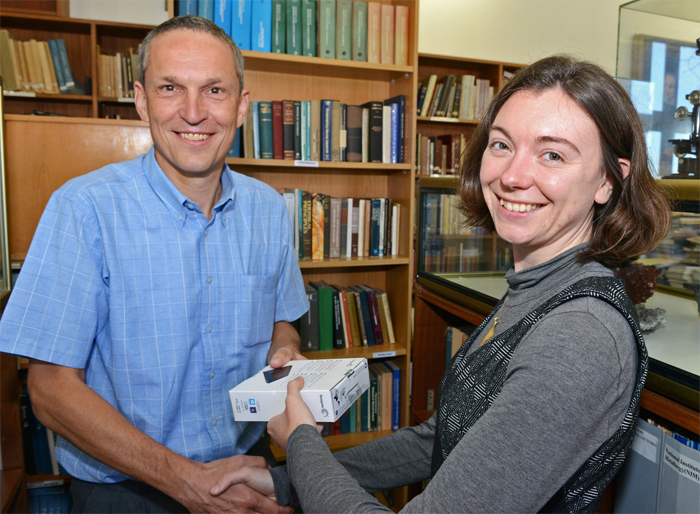Shell's seismic data to help train UCT students
24 October 2014 | Story by Newsroom
High-quality three-dimensional seismic data, collected off the West Coast of South Africa by petroleum giants Total and Shell, will help geologists accurately pinpoint gas and oil in the area and also provide an invaluable training tool for the Department of Geological Sciences.
In a similar way in which ultrasound scanning can be used to build up a picture of the human body, seismic datasets can be used to accurately map the subsurface by measuring the arrivals of artificially generated seismic waves."These data provide a detailed three-dimensional picture of the underlying geology, which is essential in the search for oil and gas in increasingly more complex and challenging environments," says geological sciences lecturer Dr Beth Kahle. "Computer processing of the data can be used to reveal whether the tiny pore spaces between grains in a rock are likely to contain uninteresting salty water, or valuable oil and gas.
"In addition to aiding in petroleum exploration, seismic data can be used to investigate fundamental scientific questions, such as: how continents rift apart; why the elevation of Southern Africa is so unexpectedly high; and can even occasionally lead to the discovery of new meteorite impact craters!," Kahle explains.
"The data that we receive from the petroleum industry plays a vital role in the education and training of young South African Earth scientists. Our undergraduates practice their skills at interpreting data, whilst our honours and MSc students gain an in-depth appreciation of the technical and scientific aspects of such data sets, by independently interrogating the data as part of their research projects.
"Academics are rarely able to carry out seismic surveys over such extensive regions, which are routinely carried out by petroleum companies. Industry partners therefore make an irreplaceable contribution to the education of our students, assisting continued internationally recognised scientific research, but also ensuring that young South Africans are trained to enter and compete within a global market."
 This work is licensed under a Creative Commons Attribution-NoDerivatives 4.0 International License.
This work is licensed under a Creative Commons Attribution-NoDerivatives 4.0 International License.
Please view the republishing articles page for more information.










